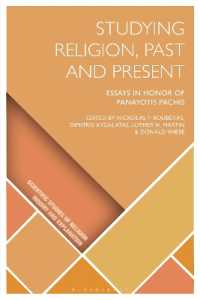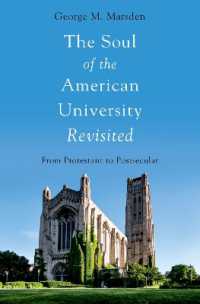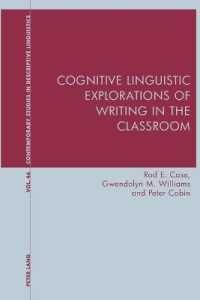- ホーム
- > 洋書
- > 英文書
- > Religion / Ethics
Full Description
Knowledge, Love, and Ecstasy in the Theology of Thomas Gallus provides the first full study of Thomas Gallus (d. 1246) in English and represents a significant advance in his distinctive theology. Boyd Taylor Coolman argues that Gallus distinguishes, but never separates and intimately relates two international modalities in human consciousness: the intellective and the affective, both of which are forms of cognition. Coolman shows that Gallus conceives these two cognitive modalities as co-existing in an interdependent manner, and that this reciprocity is given a particular character by Gallus anthropological appropriation of the Dionysian concept of hierarchy. Because Gallus conceives of the soul as hierarchized on the model of the angelic hierarchy, the intellect-affect relationship is fundamentally governed by the dynamism of a Dionysian hierarchy, which has two simultaneous trajectories: ascending and descending. Two crucial features are noteworthy in this regard: in ascending, firstly, the lower is subsumed by the higher; in descending, secondly, the higher communicates with the lower, according to the nature of the lower. When Gallus posits a higher, affective cognitio above an intellective cognitio at the highest point in the ascent, accordingly, this higher affective form both builds upon and sublimates the lower intellective form. At the same time, this affective cognitio descends back down into the soul, both enriching its properly intellective capacity and also renewing the ascending movement in love. For Gallus, then, in the hierarchized soul a dynamic mutuality between intellect and affect emerges, which he construes as a spiralling motion, by which the soul unceasingly stretches beyond itself, ecstatically, in knowing and loving God.
Contents
PART I - FOUNDATIONS AND STRUCTURES; PART II - ASCENDING; PART III - DESCENDING; PART IV - REMAINING







